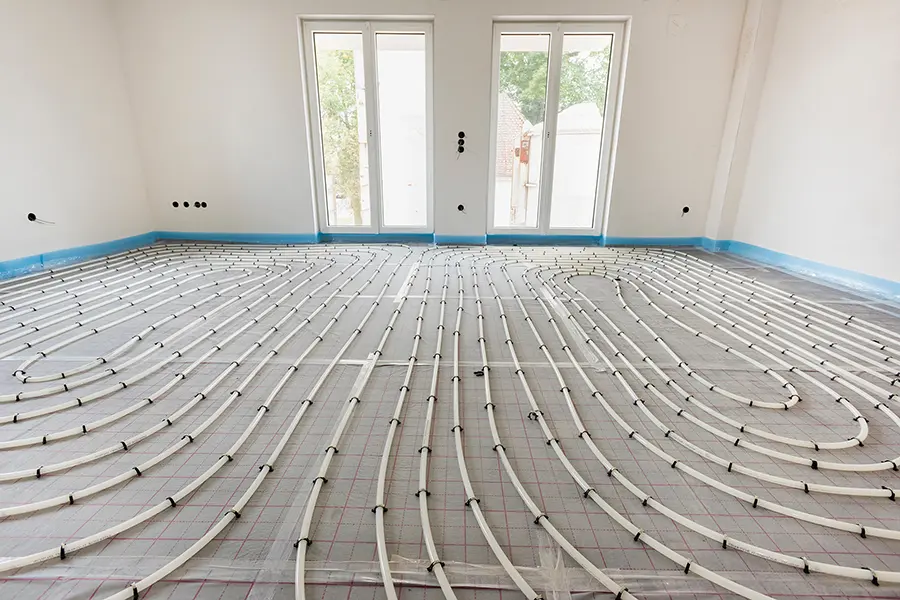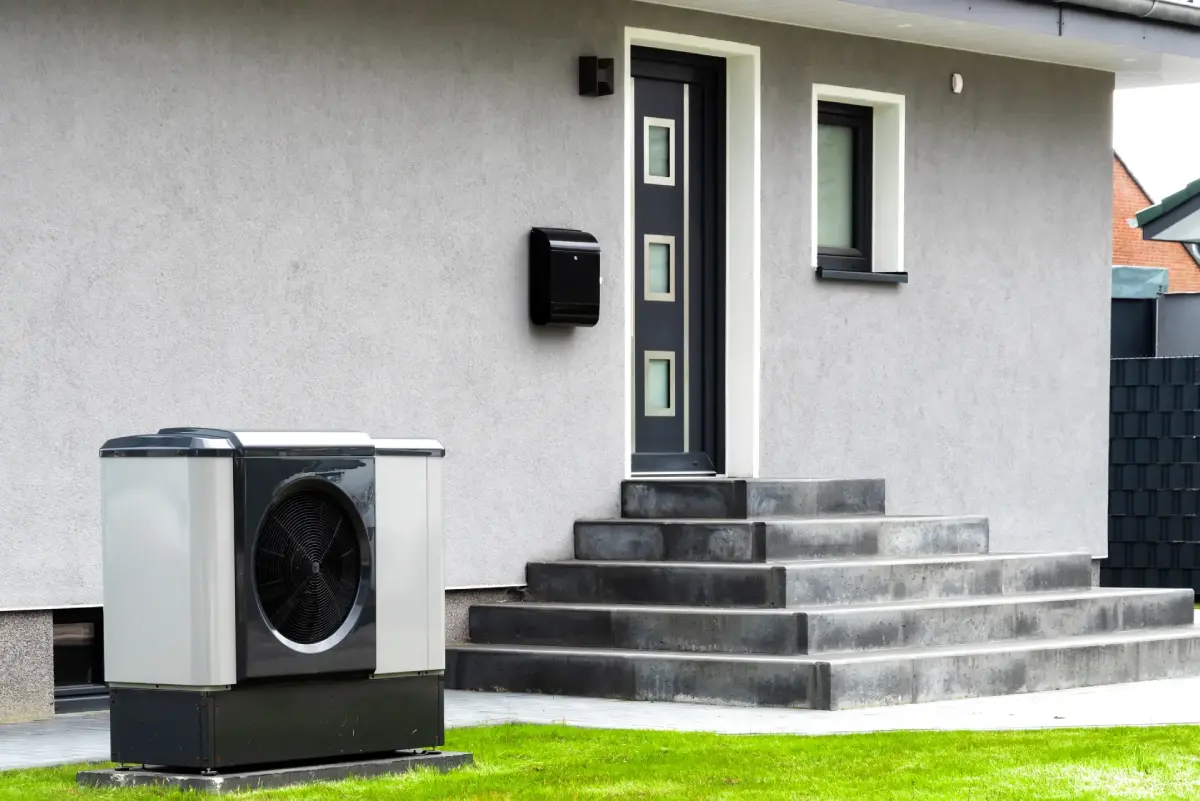Introduction: Why you should read this heating guide
In this guide you will receive tips and learn how to use your heating effectively and save money at the same time. Many people heat their homes incorrectly and thus pay a lot of money for energy every year. It is not that difficult to use the heating properly. In this guide you will learn everything you need to know about the right heating system and how to operate it.
If you use your heating properly, you can not only save, but also improve your health. Many suffer from respiratory diseases because they live in a home that is too cold or too warm. Properly adjusted heating can help improve health. In this guide you will learn everything about:
- How to save money by heating your home
- The different types of heaters and how they work
- Thermal insulation - what is it and how can it help you save money?
- How to properly set and use your heating in your home to save money
- Tips for using alternative energy sources to heat your home
We are aware that house builders, homeowners and renters all have different requirements and that not all of them can implement our tips in the same way. Therefore, pick out the tips and tricks that are right for you.
1. How to save money when heating your home
There are many ways to save on heating your home. With a few simple tips and tricks, you can significantly reduce your heating costs.
1. Thermal insulation: Thermal insulation is one of the most important factors in heating. The better insulated your house is, the less energy you need to keep it warm. Make sure your insulation is in good condition and that there are no gaps.
2. Heat properly: Do not heat too much or you will waste energy unnecessarily. Set the thermostats on the radiators only as high as necessary to achieve the desired room temperature. When you are out, turn off the heating or reduce it to a minimum.
3. Ventilation: Ventilate regularly to remove pollutants from the air and regulate the humidity in the house. Open your windows wide to let the air circulate. Excessive humidity can lead to mold growth and increase heating costs, because the so-called k-value changes significantly due to a higher moisture content in the masonry. For you, this means a necessary and considerably higher energy supply. The bottom line is up to 20% more heating costs depending on the moisture in the masonry.
4. Choosing the right radiators: There are different types of radiators with different advantages and disadvantages. Find out more about the different models from your HVAC partner and choose the one that is most suitable for your home.
5. Change heating type: Some people prefer underfloor heating, others electric radiators or gas heaters. Research the different systems thoroughly and find out which ones work best for your home and wallet.
2. The different types of heating systems and how they work
They are available in various versions. Some systems use a gas stove or an electric boiler to generate the heat. Most heating systems can be operated both centrally and decentrally, which means that either heating is operated in just one place in the house or e.g. B. in apartment buildings each apartment has a separate thermal bath.
1. Central heating
Central heating is a heating system that is responsible for an entire building or facility. The heat is usually generated in a furnace or boiler and then piped to the individual rooms of the building. Central heating can either be powered by fossil fuels such as coal, gas or oil, or it can use renewable energy such as wood, water or solar.
2. Decentralized heating
A decentralized heating system is a heating system in which the thermal energy is generated and distributed at several points in the house. These are often found in apartment buildings where each apartment has its own thermal bath.
Decentralized heating systems are usually more efficient than central heating systems because they generate heat energy directly where it is needed. They are also less expensive to install and operate.
3. Underfloor heating
After the energy has been generated by a central or decentralized system, it can be distributed in the home via a wide variety of heating systems. Underfloor heating is a heating system in which the heat is distributed over the floors of the building. Underfloor heating is very effective and comfortable because it allows heat to be evenly distributed throughout the room. However, they can also be relatively expensive and usually require a specialist to install. Underfloor heating can also be used with other heating systems.

4. Decorative radiators
Decorative radiators are a popular type, especially in residential buildings. They can either be attached to the wall or stand freely in the room. Decorative radiators come in different sizes, designs and colors so that they can be easily integrated into any interior.
5. Infrared heating systems
Infrared heating systems work in a similar way to the sun: they emit heat rays that are absorbed by the surfaces they hit. Infrared heating systems are very effective and can also be used as a supplement to other heating systems.
3. Thermal insulation - what is it and how can it help you save money?
Thermal insulation is the insulation of your home to keep the heat inside and thereby heat more effectively. This can be in the form of insulating materials such as glass wool or polystyrene. Attach the materials correctly: They are usually attached between the outer walls, the roof and the windows. Thermal insulation not only helps keep your home warm, but also saves energy. Experts estimate that up to 30% of heat escapes from uninsulated houses. That's a lot.
So if you live in an uninsulated house, you may end up paying a lot more for your heating than you need to. The cost of thermal insulation depends on various factors, such as the material you want to use and the size of your home. However, it is usually worth investing in insulation as it can save you money in the long run.
4. How to properly set and use your heating in your home to save money
Efficient heating is the basis for low heating costs. With an optimal heating system and intelligent control, you can reduce your energy consumption and save money. When buying a new heating system, make sure it offers good value for money and choose a model that suits your heating needs and your circumstances.
1. Do not heat your house all the way up, only set the temperature as high as you are comfortable with. In this way you save energy and reduce your heating costs.
2. Ventilate regularly to remove excess heat and moisture from the house. Good ventilation conditions keep your house warm and dry even on cold days.
3. When choosing your heating system, make sure that it is energy-efficient. Modern heating systems are generally much more energy-efficient than older models, saving you money. Adjusting your heating system correctly can make a significant difference in heating costs. If you adjust your heating correctly, you not only save money but also protect the environment at the same time.
The temperature of your heating should be lower at night than during the day. Ideally, you should set your heating to room temperature or even slightly cooler at night. This saves you money again as heating bills are not as high when most people are asleep. It also protects the environment because less energy is consumed. In order to adjust your heating correctly, you should consider the following:
- The temperature should be lower at night than during the day. Ideally, the temperature at night should be between 14°C and 18°C. During the day it should be between 22°C and 24°C. Reduce the temperature in your house by just one degree and you immediately save 6 percent on heating costs. With an upfront payment of 250 euros per month, this corresponds to a saving of 15 euros per month. That's a whopping 180 euros a year. Not bad, right?
Also, be careful not to cover your radiators with furniture. Insulating the wall behind the radiator and venting the radiator when it makes a splashing noise often helps to reduce energy costs.
For an optimal room temperature, the rooms should be heated as follows:
- Bedroom approx. 16 - 18 °C
- Living room approx. 20 °C
- Bathroom approx. 23 °C
- Kitchen approx. 18 °C
- Floor approx. 14 °C
You can keep everything cooler at night. Bathroom, living room and kitchen to approx. 14 °C Celsius.
- The temperature should always be constant. If the temperature suddenly rises or falls, the heating consumes energy unnecessarily. It is therefore important that the temperature remains constant.
- Humidity is also important. If the humidity is too high, your heater will have to work harder to warm the room. As a result, more energy is consumed and the heating costs rise unnecessarily.
5. Tips for using alternative energy sources to heat your home
As an alternative to classic gas or oil heating, heating with alternative energy sources is also an option. These are primarily renewable energies such as solar energy or the use of biomass.
However, using these alternative energies also has its advantages and disadvantages. In most cases, the use of solar energy is significantly cheaper than the use of gas or oil. However, when using solar energy, it must be taken into account that less sun can be used in winter. Thus, at the current time, solar energy can only be seen as a supplement to existing systems.
Biomass use, on the other hand, is a very efficient way of heating, but only if there is enough wood available. Otherwise, the biomass has to be replenished regularly, which leads to additional costs. Furthermore, when using biomass, care must be taken to avoid using so-called "dirty" biomass. In addition to wood, dirty biomass also contains other substances such as chemicals that can release toxic gases when burned.
There is also the heat pump. A heat pump is a device that captures thermal energy from the environment and uses it to heat and cool buildings. The heat pump works in a similar way to a refrigerator, but in reverse: while a refrigerator transports the heat from inside the appliance to the outside, a heat pump extracts heat from the environment and transports it inside.
Heat pumps can be operated in different ways. The most common type is the air-to-water heat pump, which extracts heat from the surrounding air. There are also geothermal heat pumps, which extract heat from the ground, and brine-to-water heat pumps, in which heat is extracted from brine, a saline solution.
Choosing the right heat pump is crucial to the success of the heating system. The size and capacity of the heat pump should be adapted to the size of the building and the actual heating needs. For an optimal heating system, it is also important that the heat pump is combined with other components such as the boiler or the solar power system.

Conclusion: This is how you heat effectively and save money
Efficient heating is the basis for low heating costs. With an optimal heating system and intelligent control, you can reduce your energy consumption and thus save on heating costs. When buying a new heating system, make sure it offers good value for money and choose a model that suits your heating needs and your circumstances. With a few simple tricks you can save a lot of energy. For example, by venting your radiators regularly or by not setting the room temperature too high.
We hope this guide will help you get through the winter effectively and economically.
